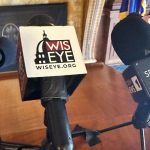Study: K-12 Spending Increases Unlikely to Result in Student Success
New analysis on K-12 spending on public schools raises questions about student impact
The News: Last month, Governor Tony Evers proposed $1.4 billion in additional spending on K-12 education in Wisconsin. This comes despite record K-12 spending under Governor Scott Walker – $5.8 billion in the last biennium. In short, Wisconsin has spent a lot on education – more than the majority of states. Will further massive increases in spending actually improve student outcomes? A new WILL report says probably not.
The Report: Truth in Spending: An Analysis of K-12 Spending in Wisconsin, by Research Director Will Flanders, PhD lays out the facts about K-12 spending in Wisconsin, where Wisconsin ranks nationally, and which school districts are getting the most bang for the buck. Most notably, using the most recent year of data available from DPI, Dr. Flanders examined the relationship of K-12 spending on public schools and student outcomes. The findings include:
- K-12 education spending in Wisconsin is in-line with the rest of the country. Wisconsin spends more money, on average, than the majority of states; $600 per pupil more than the median state.
- Wisconsin, like the United States, spends far more on education – and gets less for it – than economically developed countries in Europe and Asia. Of 41 OECD countries with data, spending in Wisconsin would rank 4th. The United States as a whole would rank 6th. Yet performance on the PISA science and reading ranks 30th. We can do better.
- An econometric analysis finds no relationship between higher spending and outcomes in Wisconsin. On average, high-spending districts perform the same or worse on state mandated exams and the ACT relative to low-spending districts.
- For instance, Slinger and Hartford are examples of districts that spend significantly less than the state average while achieving Forward Exam performance that is significantly higher. In contrast, White Lake and Bayfield have woeful proficiency rates despite spending far more than the average district.
- The only exception is graduation rates, where higher spending does have some relationship to higher rates of graduation.
- Private choice schools and charter schools in Wisconsin do more with less. These schools achieve better academic outcomes despite spending thousands less per student than traditional public schools.
Don’t Miss: This report contains an Appendix with Wisconsin school districts listed in four categories:
- High Spending/High Achieving
- High Spending/Low Achieving
- Low Spending/High Achieving
- Low Spending/Low Achieving
The Quote: Research Director Dr. Will Flanders said, “Wisconsin is simply not getting a quality return on investment for all of its spending on traditional public schools. We spend too much for not enough in return.
“The legislature should carefully scrutinize Governor Evers’ spending plans. Our analysis indicates that Evers’ plan is unlikely to lead to improving test scores for students. Policymakers should focus on smarter spending, targeting schools and programs that work, and expand access to high-performing charter and choice schools.”
The WILL Solution: Wisconsin has major issues with its K-12 education system with struggling urban and rural public school schools and one of the nation’s worst racial academic achievement gaps.
Policymakers should focus on growing high performing traditional public charters and private choice schools, expanding educational opportunities for students, and creating a more equitable and transparent school funding system. These policy solutions can be found within WILL’s “Roadmap to Student Achievement,” one of the most comprehensive reform agendas for Wisconsin.
NOTE: This press release was submitted to Urban Milwaukee and was not written by an Urban Milwaukee writer. While it is believed to be reliable, Urban Milwaukee does not guarantee its accuracy or completeness.
Mentioned in This Press Release
Recent Press Releases by Wisconsin Institute for Law & Liberty
WILL Wins Preliminary Injunction in Defense of 1st Amendment
Apr 7th, 2023 by Wisconsin Institute for Law & LibertyLawsuit is a part of WILL’s Preserving Democracy Project






















